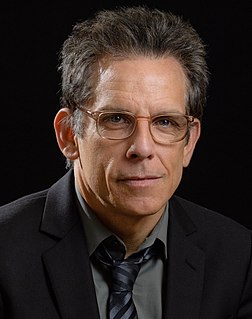A Quote by Warren MacKenzie
If you take Lucie Rie and Hans Coper, their work didn't even relate to what we were trying to do, because they were moving in a different direction, both of them coming out of Europe and the Viennese school of design, which Lucie came from, and Coper learning from Lucie and then springing off on his own when she encouraged him to explore more widely. So he created his own work instead of just working for her and doing her forms. So that was a wonderful thing.
Related Quotes
I don't know, it's very difficult if you're in a strange country to just barge in and say, "Hello, I'm Warren MacKenzie, and aren't you happy to have me as a guest," you know? But artists did accept us and we remained friends for many, many years, many of them as long as they lived; like Lucie Rie and Hans Coper were very good friends, and it was wonderful.
Friends of Bernard's [Leach] came to visit, and when we went to London, we were given introductions to people like Lucie Rie, Hans Coper, Richard Batram. All these people were, let's say, made available to us by a friendship with Leach. In addition there was a potter's group - what was it called? I think it was called the Cornish Potters Society, but I'm not sure of that. Anyway, they had meetings and we would go with Leach to these meetings and meet other potters, and they would have programs where they would discuss pottery and people would interchange ideas.
Then Mrs. Tiggy-winkle made tea - a cup for herself and a cup for Lucie. They sat before the fire on a bench and looked sideways at one another. Mrs. Tiggy-winkle's hand, holding the tea-cup, was very very brown, and very very wrinkly with the soap-suds; and all through her gown and her cap, there were HAIRPINS sticking wrong end out; so that Lucie didn't like to sit too near her.
Some years ago I was working on some forms which were vase forms with a fairly narrow base, and it was after [Hans] Coper had died that I saw an exhibition of his, a catalogue from an exhibition, and he was showing some forms which were made by cutting and joining a lot of different parts together to create what he called a spade form, which you can imagine looks a little bit like a shovel upside down.
A great deal has been said about love at first sight; I am perfectly aware of love's retrospective tendency to make a legend of itself, turn its beginnings into myth; so I don't want to assert that it was love; but I have no doubt there was a kind of clairvoyance at work: I immediately felt, sensed, grasped the essence of Lucie's being or, to be more precise, the essence of what she was later to become for me; Lucie had revealed herself to me the way religious truth reveals itself.
Cold?" Ravus echoed. He took her arm and rubbed it between his hands, watching them as though they were betraying him. "Better?" He asked warily. His skin felt hot, even through the cloth of her shirt, his touch was both soothing and electric. She leaned into him without thinking. His thighs parted, rough black cloth scratching against her jeans as she moved between his long legs. His eyes half-lidded as he pushed himself off the desk, their bodies sliding together, his hands still holding hers. Then, suddenly, he froze.
But even though she was attractive, there was something else about her that caught his eye. She was intelligent, he could sense that right away, and confident, too, as if she were able to move through life on her own terms. To him, these were the things that really mattered. Without them, beauty was nothing.
Her hair was a damp mass of curls at the back of her neck, and Will looked away from her before he could remember what it felt like to put his hands through that hair and feel the strands wind about his fingers. It was easier at the Institute, with Jem and the others to distract him, to remember that Tessa was not his to recall that way. Here, feeling as if he were facing the world with her by his side--feeling that she was here for him instead of, quite sensibly, for the health of her own fiance--it was nearly impossible.
Seeing him like this, dressed just for her in so patent a manner, she could not hold back the fiery blush that rose to her face. She was embarrassed when she greeted him, and he was more embarrassed by her embarrassment. The knowledge that they were behaving as if they were sweethearts was even more embarrassing, and the knowledge that they were both embarrassed embarrassed them so much that Captain Samaritano noticed it with a tremor of compassion.
And of course, FDR was very charming. At 6'2", he was tall enough to be her beau, and they made a beautiful couple. And she could encourage him. His mother also encouraged him. So this notion of a woman with ideas of her own and a spirit of her own and a style of her own was very congenial to Franklin. And he loved her. And their romance was a very dear and true and deep romance.

























